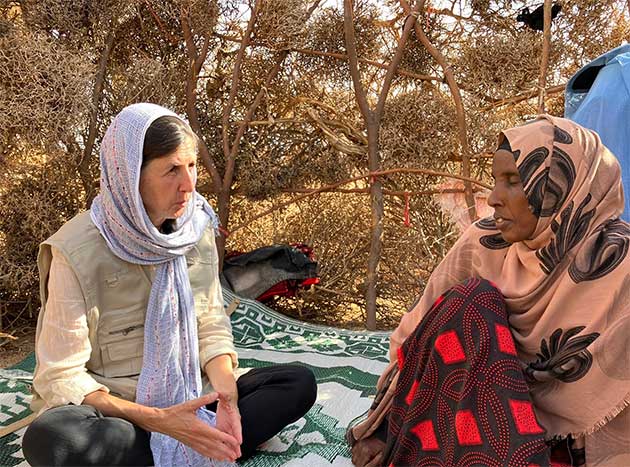NEW YORK, Sep 25 (IPS) – With its global representation, one would expect the UN General Assembly to touch on many diverse issues. And it does. But talks have repeatedly come back to one unifying call: if we want to save ourselves, our planet, and our future, we must act now.
In his remarks at the UN General Debate last Tuesday, President Biden reaffirmed the United States’ commitment to combat the intersecting challenges of the climate crisis, hunger, and worldwide inequality. Yet the following day at the Climate Ambition Summit, the U.S. was not recognized as a climate leader or granted speaking time since the U.S. had no new climate commitments.
In his remarks, President Biden said that extreme weather events around the world “tell the urgent story that awaits us if we fail to reduce our dependence on fossil fuels.” Yet, with current policies in place, the United States accounts for more than one-third of planned global oil and gas expansion through 2050 and has the largest shortfall between its climate plans and what is needed to meet its fair share of emissions reductions to prevent catastrophic climate change.
Now President Biden and the United States government need to step up with more investments and more action – not only to be the climate president he promised, but also to realize the United States’ obligation as the largest historical emitter.
But this is not only about combatting climate change. The latest UN report confirms what many of us in the humanitarian sector have been emphasizing for years: the quests to combat climate change, fight inequality, and achieve our Sustainable Development Goals (SDGs) are not mutually exclusive missions.
During a recent trip to the Sahel, I visited Bargny, a coastal community south of Dakar. There, one woman activist, a mother and grandmother, shared her experience of losing her home to sea-level rise and erosion. She and other displaced families were promised land to resettle, only to have the government grant that land to a foreign company to build a coal-burning power plant.
According to the people we spoke with, this was done without any community consultation or compensation for the people affected. Unfortunately, such injustices are all too common because of our continued investment and reliance on fossil fuels.
Marginalized communities bear the brunt of decisions made on their own land and from thousands of miles away, and these people often have little say in the policies that impact their lives so profoundly.
As we approach the midpoint of the 2030 Agenda, we’re falling far short of our SDG targets that aim to protect communities like Bargny all around the world. Our research at Oxfam showcases the depth of this crisis: as extreme weather events and poverty surge, so does extreme inequality.
The carbon emissions of the richest 1 percent are more than double the emissions of the poorest half of humanity combined. But once we consider the investments of those at the very top, in addition to their lifestyles, the data is even more stark. On average, a billionaire emits a million times more greenhouse gases than the average person, and billionaires are also much more likely to use their wealth to invest in polluting industries.
Whether in response to the recent floods in Libya, rising hunger across nations, or the earth’s hottest and most brutal summer since global records began in 1880, the call for immediate climate action, with emphasis on reducing our dependence on fossil fuels, and safeguards for affected communities has never been louder.
The US, having historically contributed massively to climate pollution, shoulders an immense responsibility to lead the charge against climate disasters and empower and finance local leaders, young people, and marginalized communities.
This past Sunday, many of my Oxfam colleagues were part of the 75,000 people marching through New York City to demand an end to fossil fuels. They held up signs that said “climate change knows no borders.” What we do here – good or bad – affects all the countries represented in the United Nations.
It’s an uphill battle, but every moment, and every decision, counts. While President Biden’s words resonate with hope and commitment, we must see more action or they are merely platitudes. Time is running out, and the world watches, hopeful and expectant, for transformative actions that match these promising words.
Abby Maxman is the President and CEO of Oxfam America
IPS UN Bureau
Follow @IPSNewsUNBureau
Follow IPS News UN Bureau on Instagram
© Inter Press Service (2023) — All Rights ReservedOriginal source: Inter Press Service
Check out our Latest News and Follow us at Facebook
Original Source
